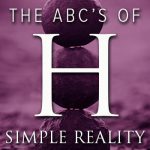 The greatest burden in life is to have a great potential.
The greatest burden in life is to have a great potential.
— Charlie Brown
Joseph Campbell says that: “The usual hero’s journey adventure begins with someone from whom something has been taken, or who feels there’s something lacking in the normal experiences available or permitted. This person then takes off on a series of adventures beyond the ordinary, either to recover what was lost or to discover some life-giving elixir.
It’s usually a cycle, a going and a returning. That’s the basic motif of the universal hero’s journey—leaving one condition and finding the source of life to bring you forth into a richer or a more mature condition. The founders of all religions have gone on quests like that.”[i]
The hero’s journey, simply put, is to express the present moment experience as one’s True self:
The hero is whoever rebels against
the father’s authority and triumphs over it.
— Sigmund Freud
Other authority figures can, of course, be substituted here for the father. “The first work of the hero is to retreat from the world scene of secondary effects [P-B] to those causal zones of the psyche where the difficulties really reside, and there to clarify the difficulties, eradicate them [by choosing responses over reactions] in his own case.”[ii]
To cling to the old theology is not only a failure of nerve
but could involve a damaging loss of integrity. [iii]
— Karen Armstrong
In “conventional” society (P-B) the hero will not even seem “reasonable” in his behavior. That’s because in the words of George Bernard Shaw, “The reasonable man adapts himself to the world; the unreasonable one persists in adapting the world to himself.”
By adapting to or accepting the story into which we were all born, we have become reasonable people living in an unsustainable, self-destructive narrative. Shaw, an unreasonable man, spent his whole life raging against the darkness of the “reasonable” narrative.
We cannot escape our destiny; we are all involved in the archetypal “hero’s journey.” We can deny this, keep it a secret to ourselves, we can join others in the collective “lie” that says we are powerless “victims” of our life’s experience, but the underlying reality never goes away. We are born into this human story bringing a boon, a gift for the rest of the human community.
We are that gift!
[i] Lesser, Elizabeth. The New American Spirituality. New York: Random House. 1999, page 202.
[ii] Campbell, Joseph. Hero With a Thousand Faces. New York: Bollingen Foundation, Inc. 1949, page 17.
[iii] Armstrong, Karen. A History of God. New York: Knopf. 1994, page 172.


